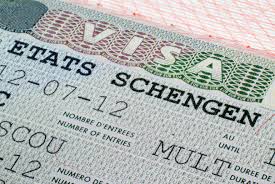
When engaging in international travel, it is crucial to comprehend the specific visa requirements. Whether you are seeking a visa for Canada, a Schengen visa, a UK visa, or any other travel authorization, understanding the distinctions between single entry and multiple entry visas can significantly enhance your travel arrangements.
What Is a Single Entry Visa?
A single entry visa permits an individual to enter a country only once during its validity. Once the traveler departs, they cannot return without obtaining a new visa, regardless of the original visa’s validity.
This visa type is particularly suitable for individuals undertaking specific, one-off journeys, such as brief business trips or attending family gatherings. For instance, a single entry tourist visa for the USA may be appropriate for someone planning a singular vacation to the United States.
Advantages of a Single Entry Visa:
Typically simpler and faster to acquire.
Lower application costs compared to multiple entry visas.
Clear and straightforward approval requirements.
Disadvantages:
Reapplication is necessary for re-entry.
Limited adaptability for unforeseen travel changes.
What Is a Multiple Entry Visa?
A multiple entry visa allows travelers to enter and exit a country multiple times throughout its validity period. This type of visa is advantageous for those who travel frequently, such as business professionals or individuals visiting family abroad on a regular basis.
For example, if you are seeking skilled migration to Australia or applying for a spouse visa for Australia, a multiple entry visa may be beneficial during the relocation or adjustment period.
Advantages of a Multiple Entry Visa:
Offers the flexibility to travel multiple times without the need for reapplication.
Cost-effective for those who travel often.
Well-suited for maintaining business or personal obligations overseas.
Disadvantages:
Higher application fees.
More rigorous eligibility requirements.
May necessitate additional documentation.
Key Considerations for Selecting a Visa
When choosing between single entry and multiple entry visas, it is important to evaluate your travel frequency and objectives. For example, a single entry visa may suffice for a one-time trip.





